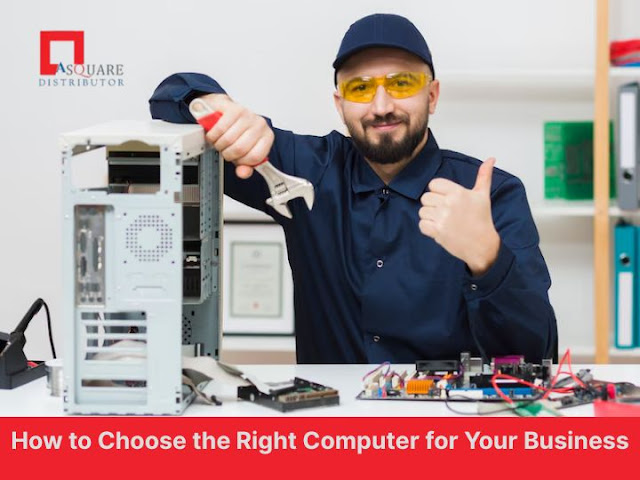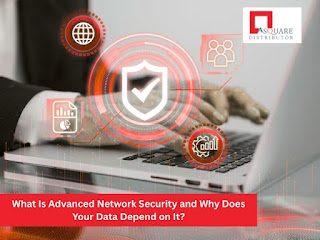How to Choose the Right Computer for Your Business
In today’s fast-paced digital world, choosing the right computer for your business is more than just picking the newest model or the flashiest brand. Your business operations, scalability, and employee productivity all depend on how well your IT infrastructure supports your daily workflow. While there are countless options on the market, Computer Dealers can be invaluable partners in helping you make the right investment for your specific needs.
Whether you're a startup with a handful of employees or an established enterprise expanding into new departments, the decision-making process for purchasing computers must be strategic. Below, we break down the most important factors to consider when selecting the best business computer setup.
1. Understand Your Business Needs
Before jumping into specs and prices, identify how the computers will be used in your company. Are your employees using basic productivity tools like Microsoft Office and email? Or are they running high-performance software such as AutoCAD, Adobe Creative Cloud, or enterprise-level CRM systems?
Typical computer usage in a business setting can be divided into a few categories:
-
Basic Office Work: Requires minimal specs — a mid-range CPU (Intel i5/AMD Ryzen 5), 8GB RAM, and SSD storage.
-
Multimedia or Design Work: Demands higher performance — i7 or Ryzen 7, 16GB+ RAM, dedicated GPU, and color-accurate displays.
-
Server Management or Development Work: May require workstations or custom builds with specific configurations.
Understanding the tasks your computers need to handle helps narrow down the choices quickly.
2. Decide Between Laptops and Desktops
Laptops offer portability, making them ideal for employees who work remotely or travel frequently. Desktops, on the other hand, are generally more powerful, upgradeable, and cost-effective in the long term.
For hybrid or remote teams, you may need to invest in lightweight yet capable laptops. For in-office staff, especially those involved in complex tasks, desktops may be the better fit.
3. Pay Attention to Specifications
Let’s break down the key components:
-
Processor (CPU): The brain of the computer. Look for multi-core processors for multitasking. Intel Core i5/i7 or AMD Ryzen 5/7 are commonly used for business.
-
Memory (RAM): At least 8GB is recommended for basic tasks, 16GB or more for heavier workloads.
-
Storage: SSDs are faster and more reliable than traditional HDDs. Opt for at least 256GB SSD for quicker boot times and responsiveness.
-
Graphics: Integrated graphics are fine for general tasks, but creative professionals need dedicated GPUs like NVIDIA or AMD Radeon cards.
When working with Computer Dealers, be sure to explain your business processes. Many experienced dealers can help customize builds to meet your exact specifications, potentially saving you both time and money.
4. Think About Future Scalability
Technology evolves rapidly, and so do business needs. Choose computers that allow for upgrades — such as extra RAM slots, available drive bays, or modular components. Scalable technology ensures your investment remains relevant for longer and supports growth without a complete overhaul.
Also, consider purchasing extended warranties or support packages to minimize future downtime.
5. Evaluate Operating Systems and Software Compatibility
Some businesses thrive in the Windows ecosystem due to software compatibility, while others prefer macOS for design or Unix-based systems for development. Match your hardware choices with the operating system that best supports your business software tools.
For example:
-
Windows PCs are widely compatible with enterprise software.
-
Macs are preferred in creative industries.
-
Linux systems may suit developers or open-source environments.
6. Don't Forget About Security and Networking
Your computers must be secure from day one. Choose systems that support advanced security features such as biometric logins, hardware-based encryption (like TPM), and regular firmware updates.
Additionally, ensure your network hardware can support the number of devices and the type of traffic your business generates.
7. Consult the Experts
The wide variety of options available can easily overwhelm business owners. That’s why many companies rely on trusted Computer Dealers to help with product sourcing, configuration, and even after-sales support. Dealers can often recommend the best solutions tailored to your industry, offer volume discounts, and assist with setup and deployment.
Final Thoughts
Selecting the right computer setup for your business isn’t just about speed and aesthetics — it’s about matching technology to your business goals. Carefully assess your operational needs, consider future growth, and think long-term.
Above all, leverage the knowledge and experience of reputable Computer Dealers who understand both hardware and business needs. With the right technology foundation, your team will be empowered to work more efficiently, adapt quickly, and deliver better results for your customers.
.jpg)



Comments
Post a Comment